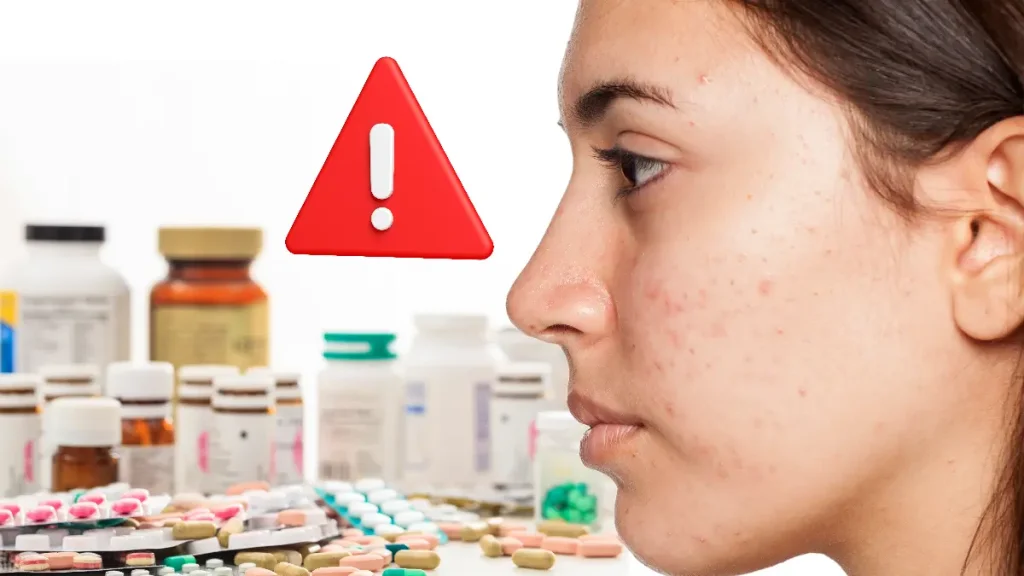In the realm of dermatology, isotretinoin has been a game-changer for individuals battling severe acne. However, its use has not been without controversy, particularly concerning its potential side effects. Recognizing the need for enhanced safety measures, the UK Medicines and Healthcare Products Regulatory Agency (MHRA) has introduced significant regulatory changes to ensure the safer use of this potent medication.
The Role of MHRA & CHM
The MHRA, an executive agency of the Department of Health and Social Care, is tasked with regulating all medicines and medical devices in the UK. Its mandate is to ensure that these products are effective and safe for public use. The Commission on Human Medicines (CHM), a government’s expert scientific body, plays a crucial role in advising the MHRA. In April 2023, following an expert safety review by the CHM’s Isotretinoin Expert Working Group, the CHM recommended strengthened safety measures for isotretinoin.
The Concerns Around Isotretinoin
Isotretinoin, known by brand names such as Roaccutane and Reticutan, is a powerful treatment for severe acne, particularly when there is a risk of permanent scarring. While it has been effective for many, concerns have been raised about its suspected psychiatric and sexual side effects. These concerns, voiced by patients and their families, prompted a patient-focused independent expert review.
Listen to the Podcast About The Issues with Roaccutane
New Regulatory Changes
The MHRA’s new safety measures, effective from October 31, 2023, are a response to these concerns. The changes include:
- Additional Oversight for Under-18 Patients: Patients aged 12 to 18 will now require an assessment by two independent healthcare professionals before isotretinoin is prescribed. This ensures that isotretinoin is used only when absolutely necessary.
- Enhanced Information on Risks: Patients will receive detailed information about the potential risks of isotretinoin, including psychiatric and sexual side effects. This measure aims to ensure patients and their families are well-informed before starting treatment.
- Improved Monitoring: All patients will undergo in-person assessments of their mental and sexual health before and during isotretinoin treatment. Healthcare professionals will also receive new resources to support appropriate patient monitoring.
⚠️ New measures have been introduced to strengthen the safe use of the acne drug isotretinoin, commonly known by brand names Roaccutane/Reticutan, for UK patients, following a patient-focused expert review⚠️
— MHRAgovuk (@MHRAgovuk) October 31, 2023
For more information, read more here🔗 https://t.co/6Bx7or76R5 pic.twitter.com/QsRnygEd1e
The Importance of the Yellow Card Scheme
The Yellow Card scheme is a critical component of the MHRA’s monitoring system for safety concerns, including suspected side effects or adverse incidents involving health and beauty products. This scheme allows anyone to report their experiences with medicines, medical devices, and other healthcare products used in the realm of beauty. The data collected through this scheme was instrumental in informing the recent changes to isotretinoin regulation.
MHRA’s Commitment to Safety
The MHRA’s actions underscore its commitment to ensuring that the benefits of medicines like isotretinoin justify any potential risks. By implementing these new measures, the MHRA aims to safeguard patients, particularly the vulnerable young population, from the less understood aspects of isotretinoin treatment.
The introduction of these new safety measures marks a significant step in the MHRA’s ongoing efforts to balance the benefits and risks of beauty treatments. For healthcare professionals and patients alike, these changes represent a move towards a more informed and cautious approach to treating severe acne with isotretinoin. As always, the MHRA continues to work diligently to ensure the safety and efficacy of medicines and medical devices in the UK, guided by robust and fact-based judgments.
Disclaimer: This article is for informational purposes only and does not constitute medical advice. Always consult with a healthcare professional for medical advice, diagnosis, or treatment.



2 Comments
I think the recent regulatory changes by the MHRA are a significant development for anyone enthusiastic about beauty and skincare. It’s encouraging to witness the commitment to patient safety, especially for young individuals using isotretinoin. The emphasis on providing detailed information about potential risks ensures that patients and their families can make informed decisions.
The Yellow Card Scheme’s role in collecting valuable data for these changes is commendable, showcasing a collaborative effort between healthcare professionals and the public. Here’s to the ongoing dedication of the MHRA in balancing the benefits and risks of beauty treatments, ultimately prioritizing patient safety.